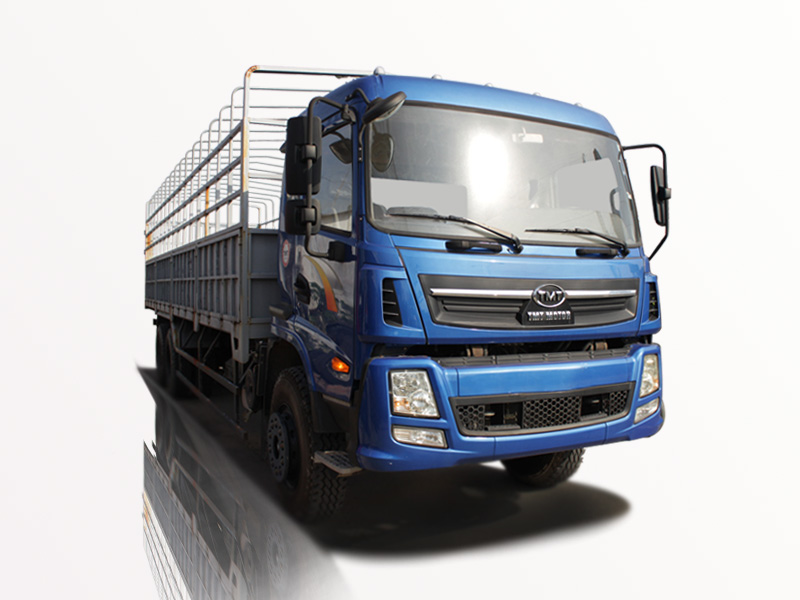Understanding the capacity of trash trucks is essential for both municipalities and residents. In this article, we’ll explore everything from the types of trash trucks available to their holding capacities, how that affects waste management, and the implications for sustainable practices. Whether you’re curious about your local waste management or are involved in the industry, this guide has you covered.
An Overview of Trash Trucks
Trash trucks are specialized vehicles designed for the collection and transportation of waste. They come in various sizes and capacities, accommodating different types and volumes of waste. Understanding the different types of trash trucks will help in grasping how much trash they can handle.
The Different Types of Trash Trucks
- Front Loaders: Used primarily for commercial waste, these trucks have a hydraulic arm that lifts dumpsters and deposits waste into the truck.
- Rear Loaders: Common for residential waste pick-up, these trucks have a rear opening where waste is manually loaded or mechanically compacted.
- Side Loaders: Innovative in design, side loaders can pick up bins from the side, which makes them efficient for curbside collection.
- Roll-off Trucks: Equipped with large containers, these trucks are used for specific projects like construction or renovation.
How Much Trash Can a Trash Truck Hold?
The capacity of a trash truck can vary widely based on its type and design. Below, we outline the general capacities for different types of trucks:
| Type of Trash Truck | Typical Capacity | Common Uses |
|---|---|---|
| Front Loaders | 3-8 cubic yards | Commercial waste pick-up |
| Rear Loaders | 10-30 cubic yards | Residential waste collection |
| Side Loaders | 15-30 cubic yards | Curbside collection |
| Roll-off Trucks | 10-40 cubic yards | Construction and renovation projects |
Factors Influencing Trash Truck Capacity
Type of Waste
The type of waste being collected plays a crucial role in how much a trash truck can hold. Bulky items like furniture take up more space than compact materials like paper or food waste. Common waste categories include:
- Dry waste (paper, plastics)
- Wet waste (food scraps)
- Bulky items (furniture, appliances)
Compaction Technology
Many trash trucks are equipped with compaction technology that allows them to compress waste, significantly increasing the amount they can carry. The level of compaction can vary from truck to truck, with better compaction systems allowing for 20-25% more waste to be collected.
State Regulations
Local and state regulations can dictate how much waste a truck can handle, especially with respect to weight limits. Heavier loads might require trucks to make more trips or to operate under different regulations, impacting efficiency.
The Importance of Trash Truck Capacity for Waste Management
Understanding trash truck capacity is crucial for effective waste management. Here’s how it affects various stakeholders:
For Municipalities
Municipalities need to plan their waste management operations effectively. Knowing truck capacities helps in budgeting for fleet maintenance, labor costs, and route planning. Efficient operations reduce costs and improve community satisfaction.
For Residents
Residents benefit from knowing how much waste they can dispose of weekly. This understanding encourages responsible waste generation and supports efforts for recycling and composting.
Practical Examples of Trash Truck Usage
Case Study: Residential Waste Collection
A typical residential area might have 100 homes. If each home generates an estimated 1 cubic yard of waste weekly, a rear loader with a 20 cubic yard capacity can service the entire neighborhood in one trip, provided the collection is once a week.
Case Study: Commercial Waste Management
In a commercial district with multiple businesses, front loaders with a 6 cubic yard capacity can efficiently collect waste from several dumpsters in a single trip. This reduces overall collection costs and improves scheduling efficiency.
Capacity Optimization Strategies
Routing Efficiency
Strategically planned routes reduce travel time and improve truck utilization, ensuring trucks reach capacity before heading to disposal sites.
Community Education
Educating communities about waste separation and recycling can reduce the total volume of waste needing collection, making the process more efficient.
Sustainability and Waste Reduction
Reducing Waste Generation
Understanding truck capacity indicates how much waste is generated collectively. Encouraging local recycling and composting initiatives can lower the volume of waste needing to be picked up, promoting sustainability.
Innovative Technology
Investments in technology, such as automated sorting at disposal facilities, can maximize efficiency when managing truckloads. Technologies that enhance waste processing reduce the overall amount sent to landfills.
Future Trends in Trash Truck Capacities
As cities evolve, the need for more efficient waste management grows. The future may bring:
- Electric and hybrid trash trucks, reducing emissions
- Enhanced compaction technologies
- Smart routing using GPS and AI for optimized collection schedules
FAQ
How often are trash trucks emptied?
Typically, trash trucks collect waste once a week in residential areas, but this may vary based on municipality schedules and the type of collection service.
What happens to the trash collected by trucks?
The collected trash is transported to landfills, recycling centers, or waste-to-energy facilities, where it is sorted and processed.
How do I know if my trash is being picked up regularly?
Most municipalities publish collection schedules on their official websites. You can also contact your local waste management office for specific inquiries.
Can I put bulky items in my regular trash?
Most municipalities have specific guidelines for bulky item disposal. Some might offer scheduled pick-ups for large items, while others have separate disposal days.
What should I do if my trash is not collected?
If your trash is not collected on the scheduled day, contact your local waste management department for guidance on what steps to take next.
Are there any weight limits for trash trucks?
Yes, weight limits are typically dictated by local regulations and can vary significantly based on the truck model and the road conditions.





